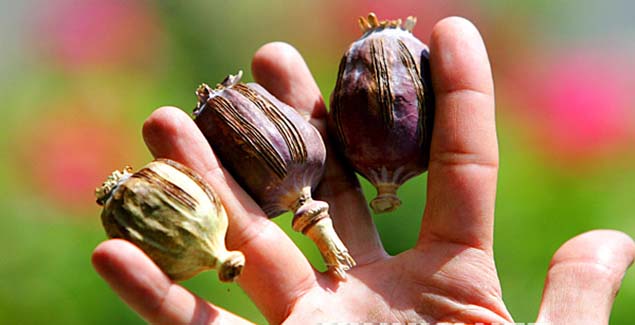In the remote and mountainous areas of Badakhshan, Afghanistan, when people get sick, they use opium as an alternative to medicine. This way of healing is not only used by adults but is also recommended to put children to sleep which is mostly understood as a sign of “healthiness” by mothers. The houses where majority of the people in Badakhshan live are built by mud and wood with no or little ventilation due to severe cold weather and children are made to breathe the smoke of opium used by their elders. During winters, some mothers puff a blowback of smoke in the mouth and face of their children to heal their sickness. It is certainly due to these malpractices that around 5000 children are opiate addicted in Badakhshan, Afghanistan (Rawa News), and are growing up without even experiencing a single day of healthy and normal life.
Non-government educational organizations interventions have increasingly helped these children with their holistic development. Education accessibility in general and early childhood development (ECD) interventions in particular are considered as a “healing touch” for these very complex and culturally dominant malpractices in Afghanistan.
Recently, I got an opportunity to visit Qazi Deh ECD center in a very remote area of Badakhshan, Afghanistan. One of the ECD teachers shared an eye opening story of a five years old child who had joined the ECD program. During the first 6 months this child was observed to be very upset, isolated, tired, silent, not taking any interest in playing with other children and always complaining of body aches.
The child’s situation made the ECD teachers curious and they started to explore the reason behind all this wearisome and sickness of this innocent child. They approached his parents but found them unwilling to discuss the issue. They approached their neighbors and learnt that “the child and his parents are opium addicted”.
The ECD teachers admitted the innocent child to the anti-addiction clinic and the doctor confirmed that the child was addicted. This child remained admitted in the clinic for 25 days before he was sent home. During his recovery, the ECD teachers played pivotal role by bringing him to the ECD center and spending some quality time with him and also by feeding him with healthy food so that he recovers soon. Their efforts paid back, after a short period of treatment and care, the child became energetic, vibrant and jolly. Today he is in grade 4 and stands first amongst his classmates in the school. The ECD teachers shared that they later probed the parents, why they had not shared about their child addiction. Parent’s response was that “if we had shared he would not have been given any chance to join the ECD class with other children”.
This story has both, happy and sad messages. It is very sad because these innocent children are living a life they had neither chosen nor had any part in deciding to live in such a situation. The positive messages of this story are manifold; it implies that providing early childhood education and development experiences not only provide intellectual stimulation but also is an entry point to live a healthy life. It depicts the fact that the NGOs interventions are not only changing the lives but are also saving the lives of children in the very remote areas of Afghanistan. The child in this story, may not be the first and last addicted child in Afghanistan but this must be the way forward – with aid from the international community’s the NGOs and government educational institutions should focus on investing in early childhood development opportunities and provide the children with a platform to grow, develop, flourish and finally be the leaders of tomorrow!

